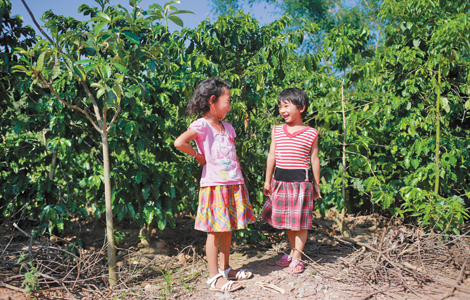Cash needed to grease wheels of the public bike system
Updated: 2013-06-27 05:49
By Xu Jingxi in Guangzhou (China Daily)
|
|||||||||||
Public bicycle systems are popular, but some struggle to make the numbers add up on the balance sheet, says Li Shanshan from the China Office of the Institute for Transportation and Development Policy.
"Except for Hangzhou, all bike-sharing systems in China are still 100 percent dependent on government subsidies," Li says, referring to the major challenge facing the country's public bike systems - to stay financially sustainable. "Whether at home or abroad, as a public service, a bike-sharing system requires government subsidies for construction and maintenance. But it's unrealistic to completely rely on government subsidies to keep the program running in the long term."
ITDP is an NGO and has offered practical advice for public bike-sharing programs in such countries as China, the US, Argentina and Indonesia.
Its office in China has helped seven Chinese cities, including Guangzhou, to build and improve their bike-sharing systems. It has also assisted the system in Jakarta, Indonesia.
How to generate revenue for a public bike system has been a key issue the office has to advise on.
So far, only Hangzhou has been able to make ends meet through a CO2 emission exchange business. According to calculations by the China Beijing Environment Exchange, nine randomly selected service stations of Hangzhou's public bicycles were responsible for the reduction of 615.55 metric tons of CO2 emissions in 2010.
Hangzhou Public Bicycle Transportation Development Co that runs the rental service sold the reduced CO2 to corporations that needed the quota for 21,000 yuan ($3,400).
"About 96 percent of people rent public bicycles for free. As a nonprofit service, we need to produce profit from other places like advertising and now exchanging CO2 emission reductions for cash," the company's general manager Zhang Fumin says.
Zhang explains the input and revenue almost balances out, which is a good result for the company.
Bradley Schroeder, ITDP's bike-sharing program consultant, points out three other major ways to raise revenue: "One is to find a sponsor. Another one is to sell the advertising on the bike shelters. The third is to charge membership fees," Schroeder says.
Selling advertising on the shelters is the most common revenue source at home and abroad. To make good use of this source, Li from ITDP's China Office advises bike-sharing systems in China to locate stations at more sites in central business areas.
"It is a win-win solution for the users and the government," Li says. "These areas are full of offices and shopping malls. They see the biggest number of users, and a billboard here is more appealing to advertisers than one in a less populated suburb."
Membership fees have developed as a new revenue source in recent years. It's popular overseas but yet to be adopted in China.
"It's difficult to charge membership fees in China because people are already used to such low-cost services," Li says. "However, the charging model popular overseas has proven to be effective in avoiding overuse of public resources and encourages shorter riding times to increase the turnover."
While it's difficult to change Chinese people's mindset to make the public accept membership charges, finding a sponsor, especially among large-scale enterprises, for the public bike system is a feasible option for the country, Li believes.
"A regular big sponsor can give the system a cohesive image, with the same logo appearing on all the bikes and shelters," Li says.
Related Stories
Danes get on their bikes to celebrate cycling 2013-05-27 16:16
A bike for Beijing 2013-04-02 09:17
Chilling Out at Beihai Park in Winter 2013-01-04 17:07
Feature: At Texas School, It's A Merry Christmas Due to "Elves", Chinese Bicycles 2012-12-17 11:58
Adventures on a red electric bike 2012-11-21 09:43
Two wheels good, four wheels bad? 2012-10-11 13:45
Today's Top News
China can curb credit crunch: ADB official
Mandela still critical, Zuma cancels trip
Rudd returns as Australian PM
Door opens on better homes for poor
Long lost weekend
Space dream closer to reality
Crime on the rise with new synthetic drugs
Prices climb as police crack down
Hot Topics
Lunar probe , China growth forecasts, Emission rules get tougher, China seen through 'colored lens', International board,
Editor's Picks

|

|

|

|

|

|





